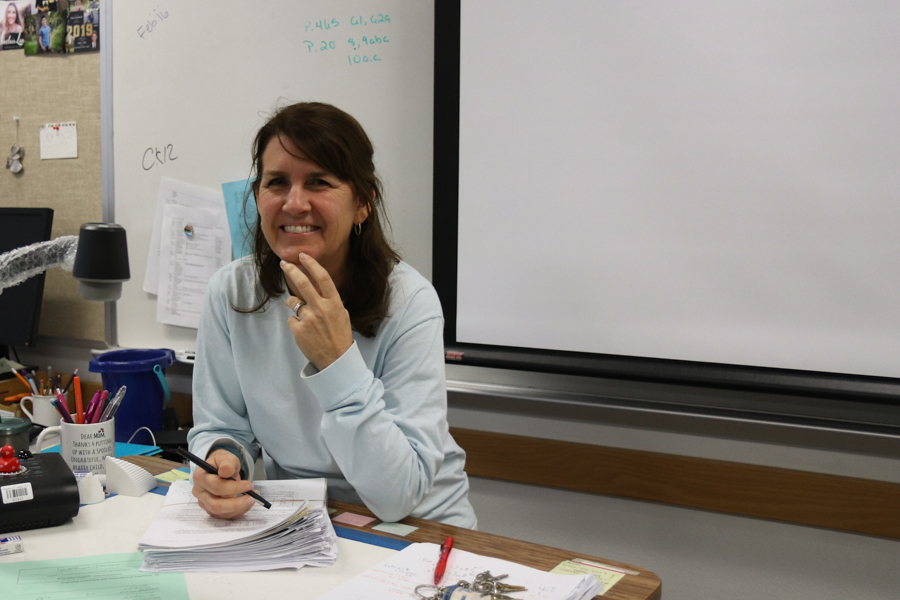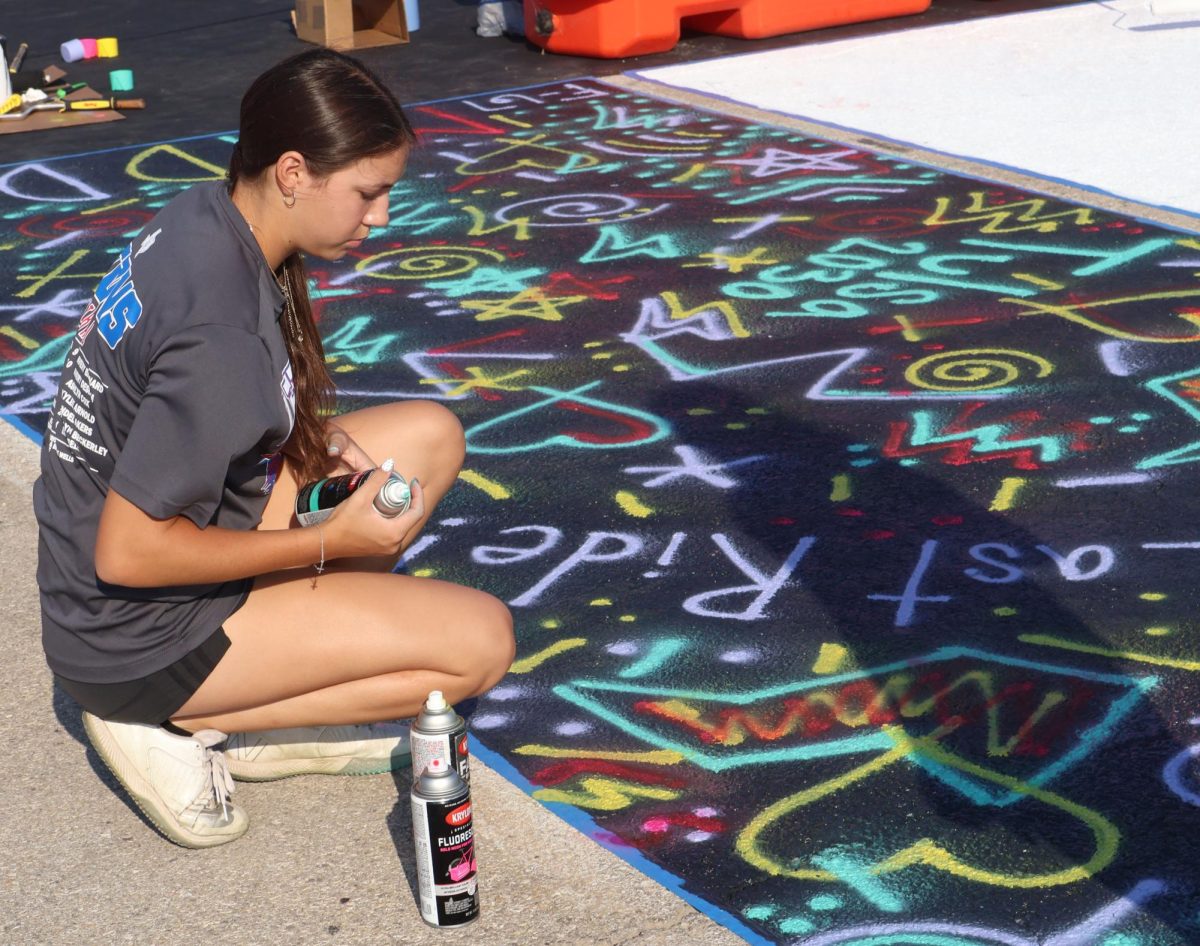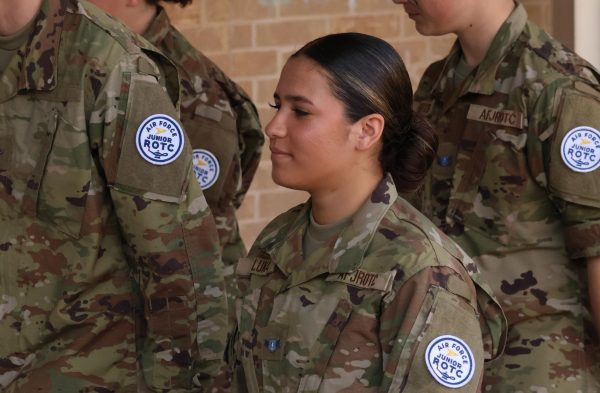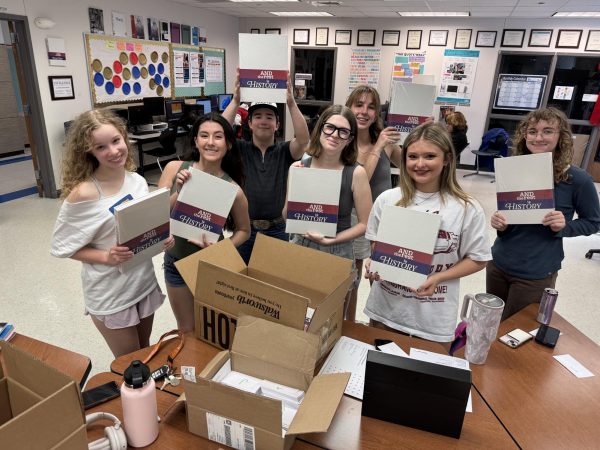Teacher spotlight: Shawna Queen
Inside look on Queen’s teaching style
Math teacher Shawna Queen poses while grading papers on Jan. 30.
January 31, 2020
From 7:30 A.M. to 5:00 P.M. and even later, Monday through Friday, math teacher Shawna Queen can be found in her classroom working with students. Whether she is teaching one of her seven Advanced Placement math classes, working with individual students or assisting with Student Council or Mu Alpha Theta, Queen seems to have an endless amount of things to do during her 30th year teaching.
“I maybe get a couple small things done before classes start, but once the school day starts, I teach, I answer questions, I talk to kids, I teach, I answer questions, I talk to kids, and that pretty much goes until the end of the school day, or around 5:00 when I start kicking you all out,” Queen said. “And then, when I get home, that’s when I try to get my grading and planning [done]. I don’t get very much of that done at school, so I do almost all of that at home.”
Part of the reason Queen has so much on her plate is because of the unique system she uses to allow students to raise their grades on assessments. Queen said it came about because of students’ fixation on grades without actually learning the material.
“I was venting about people not taking it seriously and it being all about the grade, and I was getting really frustrated,” Queen said. “Talking with kids, they told me that they liked having the ability to have a conversation to see what they did wrong. A lot of kids won’t ask in class, but if they know they’re going to get 5-10 minutes one-on-one with the teacher, they’re more willing to ask questions.”
This system gives students an individualized Khan Academy assignment. Completing that, along with assessment corrections, is followed by a short discussion with Queen.
“Students would get their paper back and they would memorize what they did on that paper, and they would come in and take the make-up without ever having actually studied specifics about what they needed to do,” Queen said. “Then, two or three weeks later, they’d forgotten it all. What I’ve found is that if a kid can turn around and explain it to me, it’s staying in their head longer. I feel like there’s more learning happening.”
While Queen said that the major problem with the system is not having enough time, she thinks the benefits that conferencing gives students are worth it, both for them and for her.
“I get to have more individual conversations with students,” Queen said. “A lot of that is academic, but it also helps me pick up more on their learning styles. That student who will never ask a question in class, I get to find out exactly what they don’t know because they are willing to ask when it’s just me.”
Queen said that while she hopes students leave her classroom being able to advocate for themselves, her students have also taught her much through her years teaching.
“My kids have taught me patience, and they’ve taught me that there is more to life than what’s going on inside the building,” Queen said. “When you guys are in the school, everyone is so focused on your academics, and there’s so much pressure to get the perfect grade. Being with teenagers almost nonstop, [I see] there’s so much more that affects you guys than just that, and there’s so much more that’s important than just that final grade that you get.”








